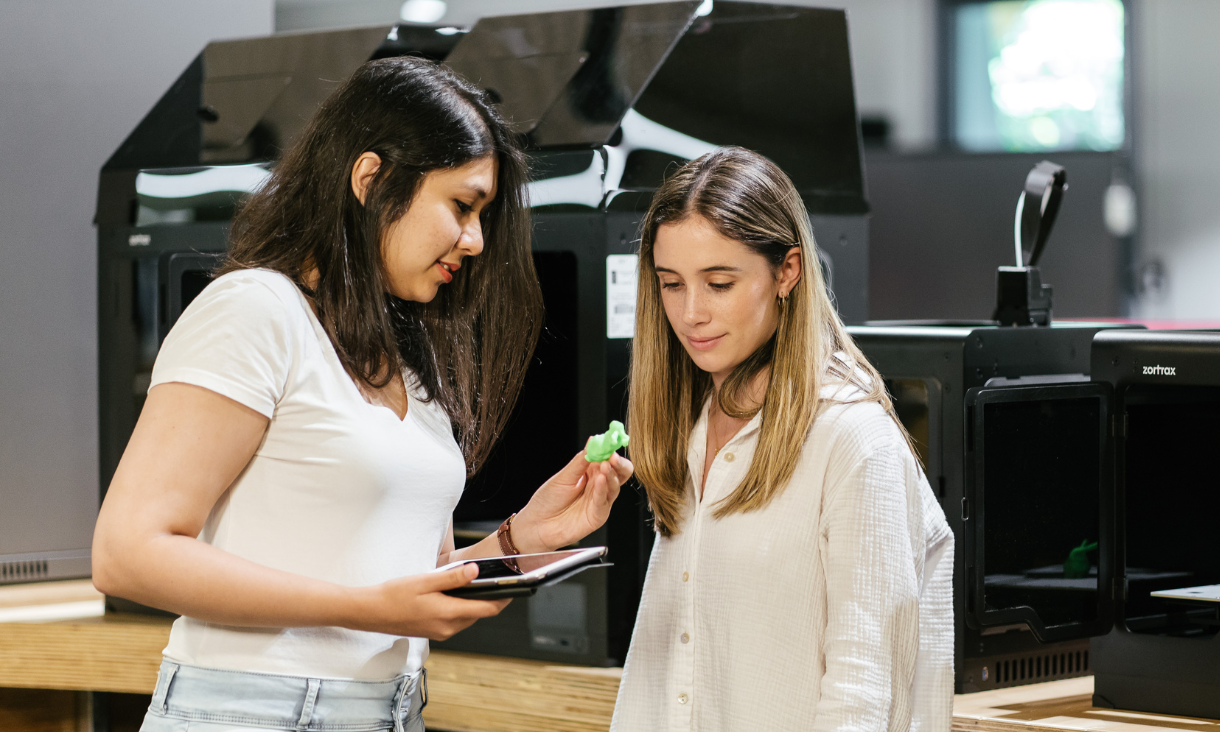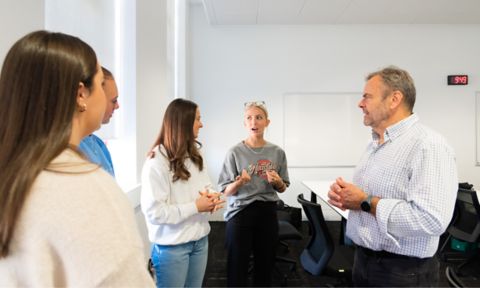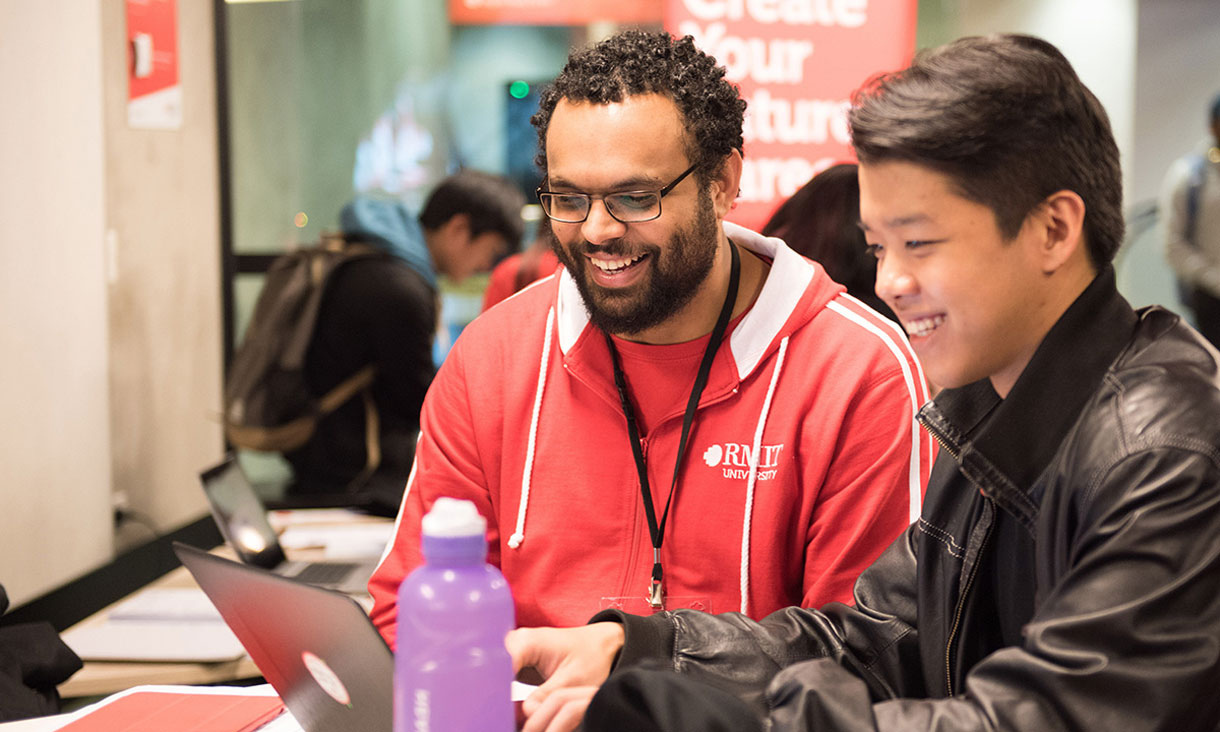Highlights:
- The tertiary sector’s approach to education, training, support and policies has evolved over the last two decades as digital learning has emerged.
- Academic integrity issues were compounded when learning had to be transitioned rapidly to online, increasing the friction between the need for technological intervention and allowing educators and students to build a trusted and safe environment for learning.
- With the rise of academic integrity issues in the pandemic and post-pandemic environment, we continue to refine and update our processes, resources and support for both staff and students to build a strong culture of integrity.
Academic integrity is one such area that has become even more severe in the new world of post pandemic education. As it encompasses many dimensions of education practices and management, it can leave lasting impacts on the education community, industry standards and the professional reputation for individuals, corporations, students, teachers and the university.
Moreover, the impacts of breaches on both student and educators can cause angst in this relatively new education environment caused by the pandemic it is vital to remedy. As such a holistic approach to academic integrity education has emerged as a way forward in a post-pandemic world and is evident in the way we approach staff quality capability building at RMIT.
The emergence of academic integrity as a priority for universities
To understand how we arrived at our current approaches to academic integrity, we need to reflect on the university sector’s collective journey of promoting and managing academic integrity over the last two decades.
Academic integrity issues have been the subject of considerable research and interest since the mid 2000’s with many iterations of training resources and guidelines used to minimise cheating. In the mid 2010’s, the need for a more holistic training approach started to emerge. This introduced the idea of building a culture of academic integrity and highlighting the need for academic integrity guidelines for online teaching, as highlighted in the TEQSA (Tertiary Education Quality Standards Agency) Occasional Forum Series: Quality Assurance of Online Learning (2018).
In 2017, RMIT launched an academic integrity micro-credential for students to raise awareness and understanding of plagiarism, referencing and integrity. The micro-cred introduced the topics of the academic community and avoiding misconduct, making the shift away from primarily technical instruction on avoiding plagiarism or cheating.
By 2019, academic integrity had become a priority issue for the university sector. There was growing interest in the academic community on the effectiveness of student training in academic integrity, academic integrity course content and student engagement in the topic of academic integrity.
Knowledge building in staff and students on academic integrity has always been a delicate balancing act between fostering a culture of integrity, ensuring policy and procedures are followed and developing engaging, useful content. However, the rise of digital learning, greater information access, contract cheating websites and a lack of understanding of what constitutes a culture of academic integrity meant training content needed to be more explicit.
‘Institutions should consider a move away from a ‘technical’ approach with its emphasis on rules and policies, towards a more values-led approach to academic integrity education (Bertram Gallant and Drinan 2006). Given their centrality to matters of academic integrity’ (Sefcik et al. 2019), with the research identifying it was ‘surprising to find the role of values underplayed or even absent in some programs examined in this study. Inevitably, academic integrity was, is and will continue to be an essential cornerstone if public trust in higher education institutions is to be maintained.’ (Sefcik et al. 2019). This research identified three major categories for design of academic integrity programs being collaborative, multifaceted and value driven.
In 2019, the Criminalisation of Contract Cheating Services Bill was put to the House of Representatives. In the midst of the pandemic by September 2020, the Bill was passed, highlighting the seriousness and consequences of this ever-growing and adapting challenge for students and all education stakeholders. It contributed to a reimagining of how we approach academic integrity, turning our attention to addressing the damage it may cause to the reputations of individuals and organisations and the issue of contract cheating services blackmailing students.
TEQSA championed the cause by providing solutions such as an online portal for reporting suspected academic cheating services and support and resources for both students and educators. Alongside TEQSA, many educational institutes including RMIT broadened their advice to students on the definitions of academic breaches. These may span a range of activities in both face to face and remote learning environments including collusion, intentional and unintentional plagiarism resulting in failure to reference adequately, contract cheating, impersonating another person during assessments, accessing support and resources outside the exam test conditions, turning in exams by another student, use of earpieces and microphones in exams.
Fast tracking how we support and promote academic integrity in a pandemic environment
A shift toward contemporary delivery modes of blended, remote, flexible and workplace learning had already catapulted integrity breach numbers. COVID-19 lockdowns and the resulting remote learning provided an environment for plagiarism and contract cheating to thrive.
While this added to the increased pressure on online tool developers and pedagogical designers, who were struggling to keep pace with the shifting landscape, educational institutes’ remedial actions to address plagiarism and contract cheating were already underway, providing a much needed head start on policy, strategies, tools and training.
Moving forward into the 2022 education environment and the ‘new normal’ of blended learning, how are universities bracing themselves for the potential impacts on academic integrity?
Several themes are emerging:
Reimagined policy, procedures and guidelines
Revisions and clarity of policy and procedures have been critical in preparing for the current education environment, particularly those pertaining to student conduct and behaviour. Policy, procedures and academic response guidelines for misconduct including investigation and substantiating breaches has become a priority for staff training.
However, redevelopment of relevant guidelines sympathetic to the new blended learning space can be resource intensive. Changes to policy and procedures is a highly consultative process and can trigger a chain reaction of workload that ripples through education spaces. It's important to be mindful of the impacts of a shift in policy and guidelines of staff, adoption and adaption takes support and time.
New training to build a culture of integrity for students and staff
Whilst refreshed training on new policy, procedure and guidelines is necessary, recent research and narrative on the effectiveness of academic integrity programs indicates a revisit of the culture underpinning integrity in student academic life within the context of remote and blended learning.
In preparation for a reimagined student academic integrity credential in 2021, RMIT engaged in consultation with both staff and students to determine where improvements could be made and how to make the course and resources more engaging and relatable for students.
Christine Ruddy, Acting Senior Coordinator of Study Support, RMIT University Library explains how the improvements “better reflects the obligations and responsibilities of students in practising academic integrity, and explains the significance of academic integrity”.
The University now has greater clarity on the breadth of content required when educating students on academic integrity, on the policy, student conduct, the student charter, behavioural expectations and responsibilities of students and how it reinforces the core values of the University and what it means to be a part of our community.
This extends to the refresh and continuous improvement of Staff Facing training opportunities on academic integrity, and piloting the integration of this course into our HR platform for ease of access.
A culture of support, trust and guidance for staff is critical for them to confidently work through issues of breaches. In cases where staff need to investigate and substantiate breaches, staff require solid, consistent, and well communicated protocols providing them with surety that they can act on suspected breaches confidently, which is key to minimising them through identifying plagiarism and contract cheating and deterring its practice.
The balance of using preventative tools and maintaining student educator trust
In RMIT’s academic integrity staff training program, educators consistently choose to undertake the reflective learning activities to focus on ‘fostering and creating supportive and respectful relationships with students and to increase interactive engagement’.
2020-21 was a steep learning curve for both student and academic; technical skill development and adoption of new technologies for remote learning for many was a priority. Whilst some flourished in this environment, many educators who often mitigated student temptation to plagiarise or utilise contract cheating services through fostering a culture of integrity and pride in academic work were stifled in the lockdown remote learning education environments.
As research suggests, educators were in tune with how vital a culture of integrity relies on human interaction and trust building. However, many of the mechanisms for managing cheating in remote learning assessments hardly reflect an environment of trust.
One 2020 research study stated ‘Online proctoring does not seem to have been widely adopted across the sector as a solution for preventing misconduct’. Amzalag et al. (2021) also warn about a growing mistrust between students and instructors during this time.’ (Comas-Forgas et al.).
With such a focus on monitoring and authentication of students’ work through increased technological interventions, the pressure on educators to engage and build trust in a way that fosters human connection becomes even more complex and convoluted.
TEQSA provides a range of resources to help facilitate this shift including the academic integrity toolkit as well as the Academic Integrity Expert’s Advice Hub with information on the latest strategies for using online invigilated exams to help replicate supervised exam conditions.
Educators are also turning to a range of strategies including third party vendor software that can lockdown browsers, authenticate and monitor students through video proctoring. This can extend to the use of facial recognition, fingerprint scanners, microphone use, analysis of student behaviour during recording of exams, analysis of typing patterns and random identity authentication during exams.
These raise a new set of issues including privacy, lack of trust, equity and accessibility and create added distraction and stress for students. These concerns reaffirm the importance of considering whether examinations have a place in this current learning environment.
Growing research suggests that exams are outmoded and assessment design and pedagogical solutions provided better opportunities for authentic assessment. RMIT has moved away from examinations where practicable. In our staff training on academic integrity, we suggest solutions for educators including in class submissions, submissions of drafts, student teacher check-ins, asking students to journal research for assessments over time, using course specific and original scenarios discussed within class just to name a few. These create opportunities for students to develop original work. This is however a discipline centric topic of discussion in academic circles and in some fields is yet to be fully resolved.
Fostering a culture of sharing and conversation
RMIT kicked off our inaugural Academic Integrity Week in March 2021 with an expert panel from our local and international educator community, followed by a week of lunch and learn activities that covered a wide range of topics including trends in university policy, assessment design and integrity, authentic assessment and work integrated learning, academic integrity in digital contexts and in the context of vocational education.
To continue the conversation, we also ran a university-wide campaign on the International Day of Action Against Contract Cheating. The campaign showcased best practice and staff success in this field, promoted resources and support for staff and engaged with students through a creative social media quiz to improve students’ understanding of the nuances of contract cheating.
Future events such as these will continue to generate awareness of issues and solutions and promote dialog and peer learning between academic staff.
Looking to the future of academic integrity
In the Higher Education landscape today the strategies to minimise plagiarism, contract cheating and collusion will continue to evolve, but we can say with certainty COVID has pushed us into a new era, accelerated all our learning and adapted our approaches to work and study.
Written by: Priscilla-Anne Green








